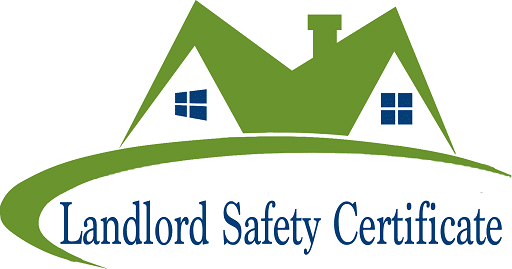
Owning and renting out property in London is both an opportunity and a responsibility. To ensure the safety of tenants and the legal integrity of your business, understanding and complying with landlord safety laws is crucial. London has some of the most stringent rental property compliance requirements in the UK. This comprehensive guide explains all the key regulations landlords must follow to stay compliant and avoid legal issues.
Landlord safety laws are designed to ensure that all rental properties meet minimum safety standards. These laws cover gas safety, electrical safety, fire safety, property condition, and tenant welfare. Failing to meet these obligations can result in hefty fines, loss of rental licenses, or even imprisonment.
In London, local councils may also enforce additional standards under licensing schemes, especially for Houses in Multiple Occupation (HMOs). Whether you rent out a single flat or multiple properties, keeping up with changing regulations is key to maintaining rental property compliance.
Gas safety is a critical component of landlord safety laws in London. Under the Gas Safety (Installation and Use) Regulations 1998, landlords must:
• Have all gas appliances checked annually by a Gas Safe registered engineer
• Provide tenants with a copy of the Gas Safety Certificate (CP12) within 28 days of the inspection
• Keep records of gas safety checks for at least two years
Failure to comply with these landlord laws can result in penalties of up to £6,000. Using a boiler maintenance checklist ensures consistent inspections and gas leak prevention.
Under the Electrical Safety Standards in the Private Rented Sector (England) Regulations 2020, all landlords must meet rental property compliance for electrical safety. Landlords are required to:
• Inspect and test electrical installations at least every five years
• Obtain and provide an Electrical Installation Condition Report (EICR)
• Give tenants a copy of the report within 28 days
Adhering to these rental property standards helps protect tenants from electrical hazards and keeps landlords legally covered.
Fire safety is strictly governed by landlord safety laws in London. To remain compliant, landlords must:
• Install a smoke alarm on each floor
• Install carbon monoxide detectors where required
• Ensure all alarms are in working order at the start of each tenancy
In HMOs, fire doors, extinguishers, and clearly marked exits may also be required. Failure to comply can lead to severe consequences, including tenant injuries and legal liability.
Though often overlooked, landlords must assess their rental properties for Legionella bacteria, which can develop in water systems. The Health and Safety Executive (HSE) recommends:
• Conduct Legionella risk assessments, especially in older properties
• Flush out the system before new tenants arrive
• Run taps regularly to prevent stagnant water
Documenting these actions helps prove your commitment to rental property compliance.

The Housing Health and Safety Rating System (HHSRS) is a tool used by councils to ensure landlords comply with landlord safety laws. It covers 29 hazards, including:
• Damp and mould
• Excessive heat or cold
• Electrical and fire risks
Local authorities can inspect rental properties and issue improvement notices or prohibition orders if they identify Category 1 hazards. Maintaining a safe property is not only your duty as a landlord but also a way to avoid enforcement actions.
To meet energy-related rental property compliance rules, all rental properties must have an EPC rating of E or higher. Landlords must:
• Provide a valid EPC before letting the property
• Renew the certificate every 10 years
• Consider energy-efficient improvements if the rating is below E
Not following EPC guidelines can result in fines and affect your ability to rent legally.
Tenant deposit handling is regulated by landlord safety laws. Landlords are required to:
• Secure the deposit in an approved scheme (TDS, DPS, or MyDeposits) within 30 days
• Provide tenants with the prescribed information
• Return the deposit promptly at tenancy end
Improper handling of deposits can result in financial penalties and legal challenges.
Right to Rent checks are essential for rental property compliance across London. Landlords must:
• Verify each tenant’s right to rent using original documentation
• Maintain and store copies securely
• Conduct follow-ups where applicable
Failing to complete this legal step risks fines of up to £3,000 per illegal tenancy.
Many boroughs enforce selective or additional licensing schemes as part of landlord safety laws. Requirements typically include:
• Applying for a property licence before letting
• Passing official inspections
• Meeting space and safety standards
Licensing laws vary, so always confirm local requirements to avoid prosecution or hefty civil penalties.
Staying compliant with rental property compliance guidelines means maintaining accurate records, such as:
• Gas and electrical safety certificates
• Tenancy agreements and deposit details
• Maintenance logs and inspection reports
Organised documentation ensures you’re prepared for inspections and protects you in case of disputes.
London’s rental property compliance requirements are detailed and constantly evolving. Staying compliant not only protects your tenants but also shields your investment from legal trouble. Being proactive about landlord safety laws is the key to long-term success as a landlord in the capital.
By understanding your responsibilities and keeping up with inspections, documentation, and legal changes, you can run your rental business confidently and responsibly.
If you need help navigating landlord safety laws or want assistance in managing your compliance documents, our team of experts at Landlord Safety Certificates London is here to help.
Contact us today for professional guidance and peace of mind.

